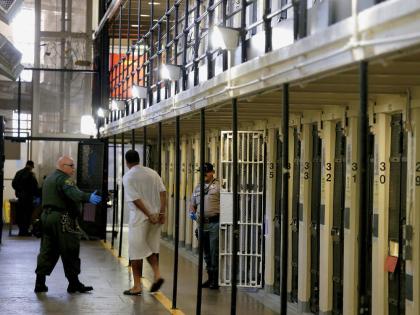Since 1978, thousands of people have streamed into Tercentenary Theatre on an early Thursday in June, looking forward to the University’s annual celebration of graduates past and present that is Commencement day.
Yet the date of this venerated tradition is relatively new. Archival records show that in the seventeenth century, Commencement was a drawn-out and moveable feast, falling variously on a Tuesday, Wednesday, or Friday in June, July, August, September, or October. In succeeding centuries, as an agrarian society yielded to industrial and modern times, the dates were changed, or the event occasionally canceled, in times of war or disease, at the behest of the Corporationor due to acts of God, as on December 9, 1683, when President John Rogers and two tutors, Samuel Andrews and John Cotton, voiced their concerns about Commencement’s date to then Harvard Fellow and future president Increase Mather:
Reverend Sir: We are heartily sorry that we are enforced to give you the trouble of these lines, the purport whereof is to signify our great dissatisfaction with the stated time of the Comencemt on the first Wensday in July next, the occasion whereof is that upon that very day wil fall out a grand Eclipse of the Sun, which was not foreseen, or at least, thought of, upon the last meeting of the Corporation. Wee are not superstitious about it, but reckon it very inconvenient.
Sir, praying a blessing upon all your labors, and begging your prayers for us, we kisse your hands, & are Your friends & servants.
Commencement was moved. Almost a century later, the Corporation voted to eliminate the day altogether in 1778. According to Harvard Commencement Days 1642-1916, by Albert Matthews, A.B. 1882, “...[I]n Consideration of the public Difficulty occasioned by the continuance of the present War, the apparent dangers of spreading the Small Pox in the natural way, the want of necessary Accommodation in the Town of Cambridge, the Houses being crowded with British officers, there be no public Commencement this Year.”
For years, Commencement eventswhich included not only academic exercises, but boat races and other athletic endeavorsfell into two separate weeks, which caused its own stresses. “The graduate from a distance who wants to be at Class Day, Commencement, the Yale game in Cambridge, and the boat races in New London, must be prepared to extend his visit from Thursday, June 22, to Friday, June 30,” noted William Fenwick Harris, A.B. 1892, in the Harvard Alumni Bulletin of February 1, 1911. “If he is interested in academic events only, he must be in Cambridge Thursday, June 22, and Wednesday, June 28, or if he is so absorbed in athletics that he wishes to see the Yale baseball game at New Haven, he must be in that city on Tuesday, June 20.”
It was LeBaron Russell Briggs, chairman of the Committee of Deans, who finally suggested that Phi Beta Kappa Day and announcement of distinctions be on Monday, Class Day on Tuesday, class dinners and celebrations of professional schools on Wednesday, and Commencement on Thursday. “Commencement cannot come earlier than Thursday,” he wrote to President A. Lawrence Lowell in May 1911, “on account of the time required for returning the marks of candidates for degrees. Any important ceremony later than Thursday diminishes the chance of a satisfactory date for the boat-race.”
With such encouragement, President Lowell established that Commencement would be the “Thursday preceding the last Wednesday in June,” starting in 1912. That lasted until pleas by students and faculty members to bring Harvard’s summer vacation more in line with those of other institutions prompted a 1952 decision, late in James Bryant Conant’s administration, to move Commencement up a week, to the second Thursday preceding the last Wednesday in June, to take effect in 1953.
Ongoing concerns about students’ abilities to cross-register for summer classes at Harvard Medical School and MIT, and to compete in the summer job market, led administrators during President Derek Bok’s tenure to consider moving Commencement up yet another week and, concurrently, to move the Faculty of Arts and Sciences’ opening day forward a week. “It’s a minor change,” said FAS dean Henry Rosovsky. “I can’t see what objections there could be.” The Governing Boards saw none, either, and approved the changes, to begin with the 1977-78 academic year.
This spring, therefore, the 354th Commencement will be celebrated on June 9, the Thursday of the thirty-eighth week following the beginning of the academic year on the third Monday of September.
Will the date change again? Possiblydepending on the twists and turns of history, wars, disease, Corporation mandatesor unforeseen acts of God. On that newly appointed Commencement day in 1978, it rained. “To shroud these finalities in a spitting drizzle may be the final indignity,” the Reverend Peter J. Gomes, Plummer professor of Christian morals, told seniors during the chapel service that morning. “But after all, God may still think Commencement is next Thursday, and being God means never having to say you’re sorry.”
~Cynthia W. Rossano
Writer and editor Cynthia W. Rossano is the author of “These Festival Rites,” which appears in the program for the Commencement exercises.








